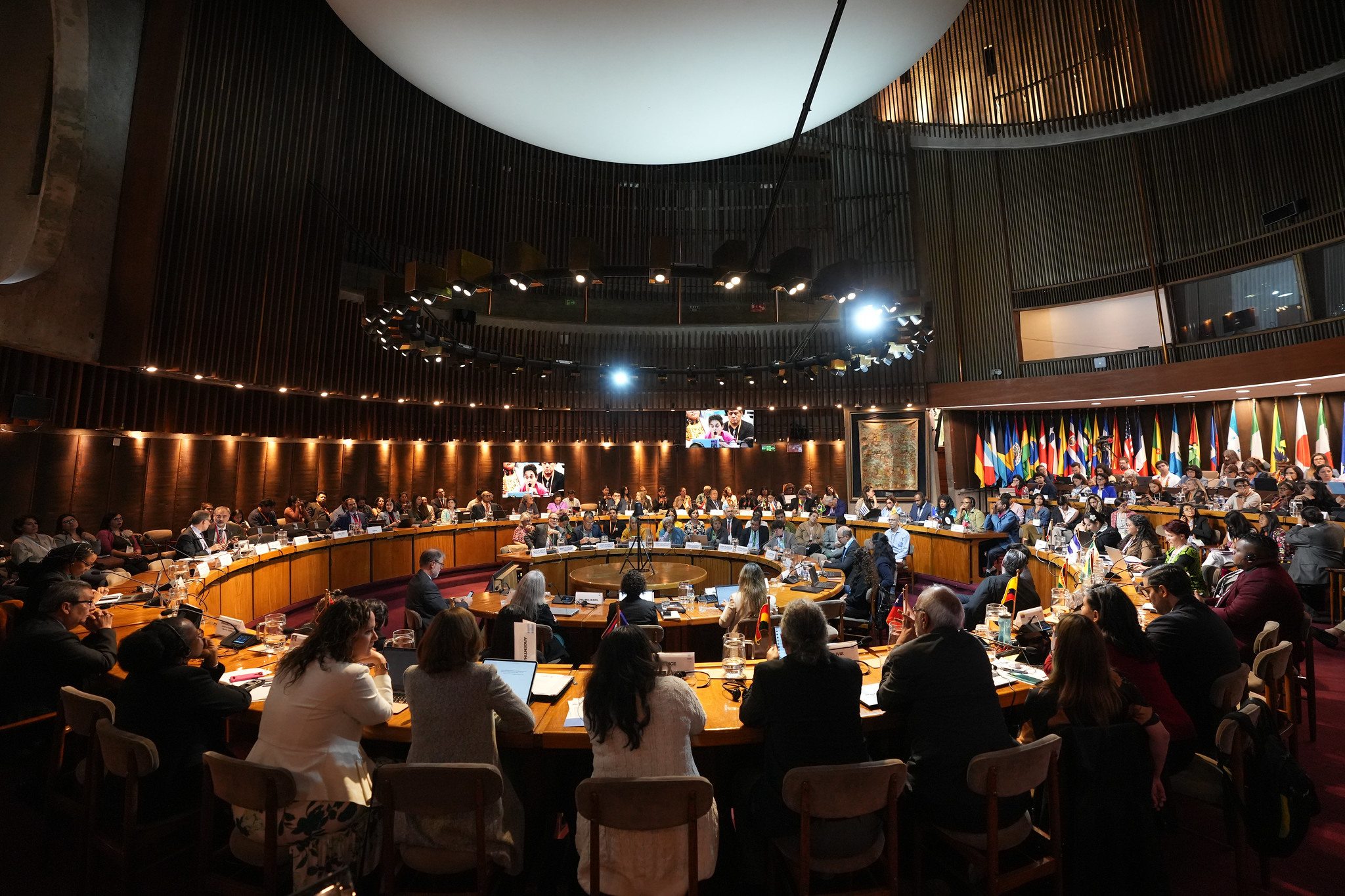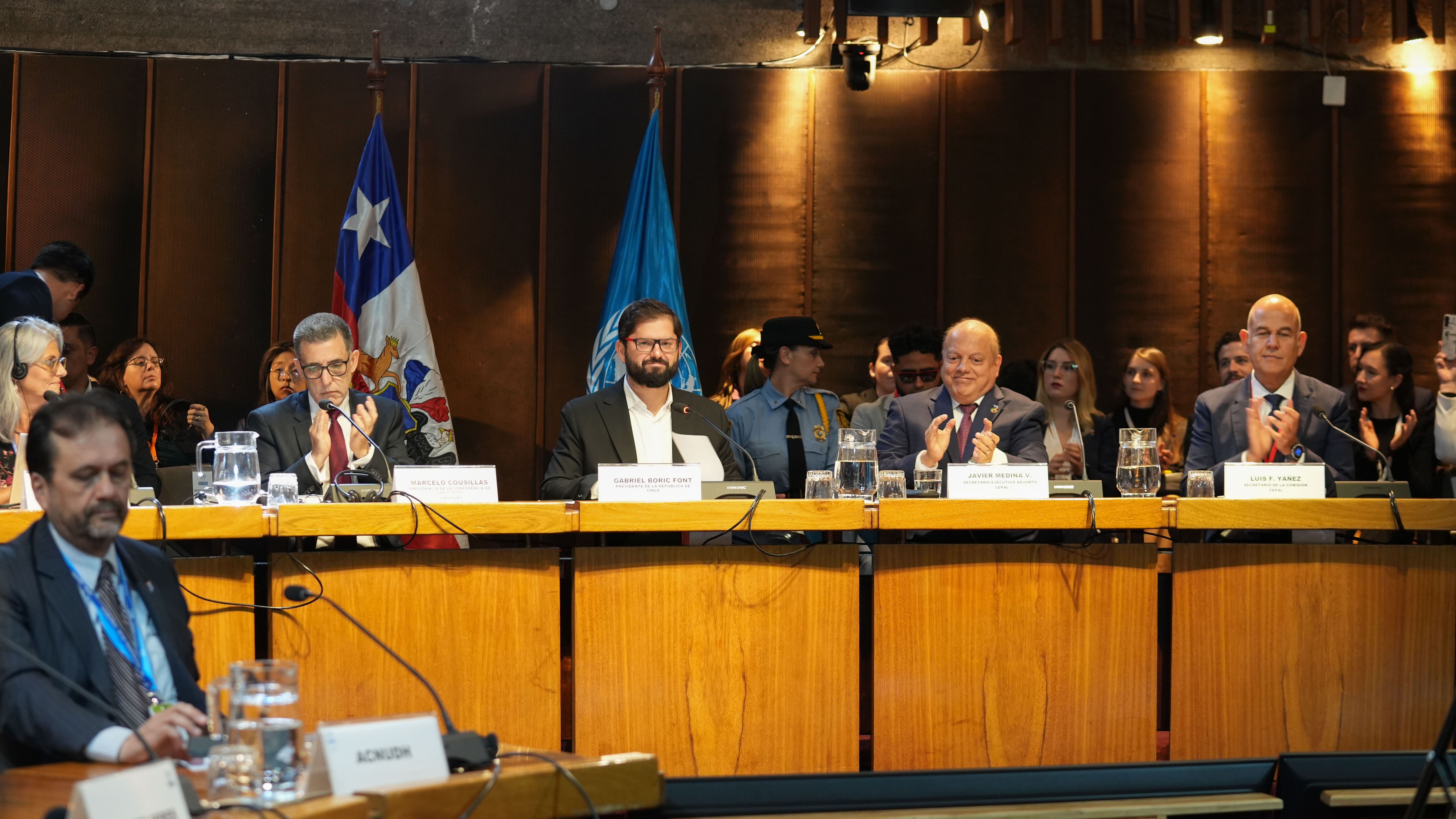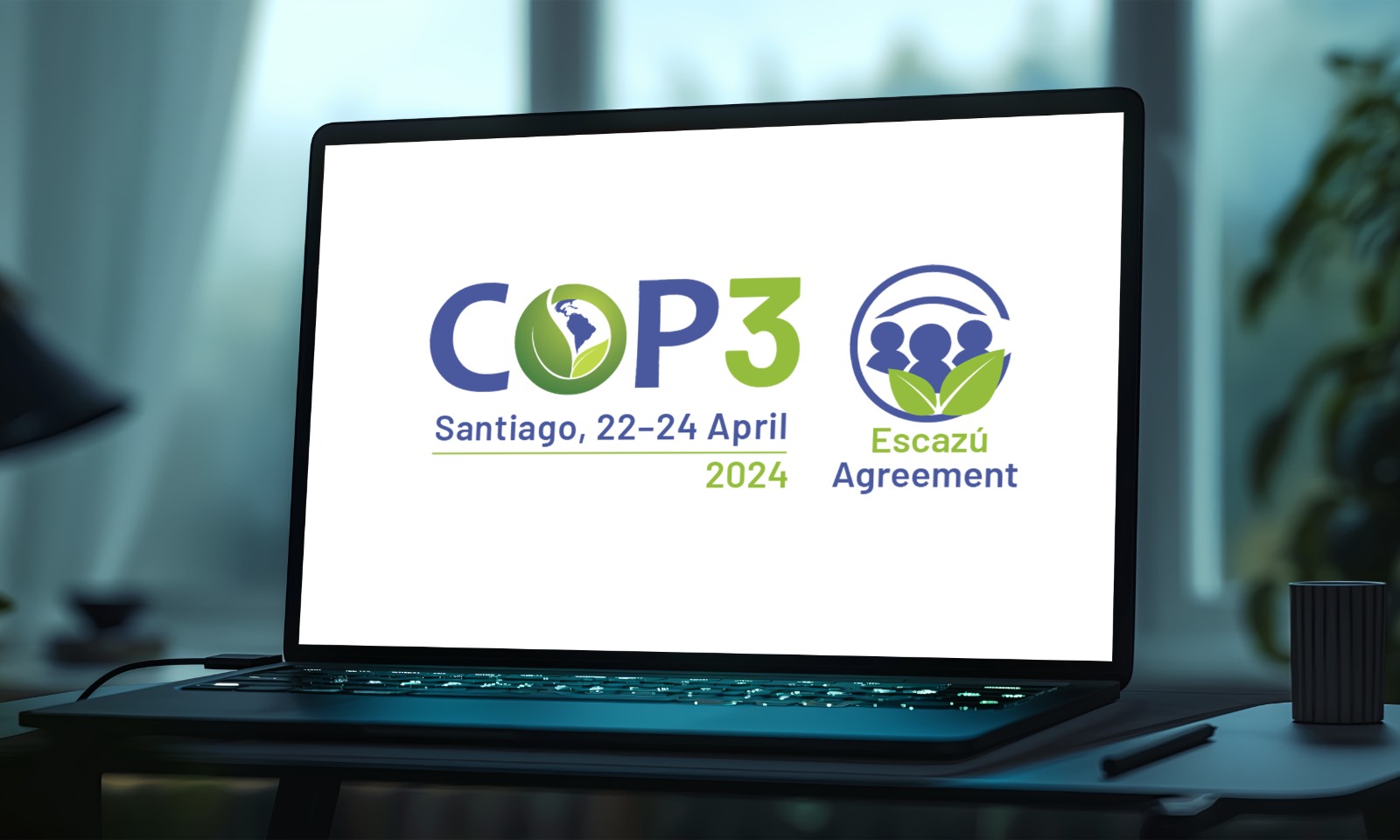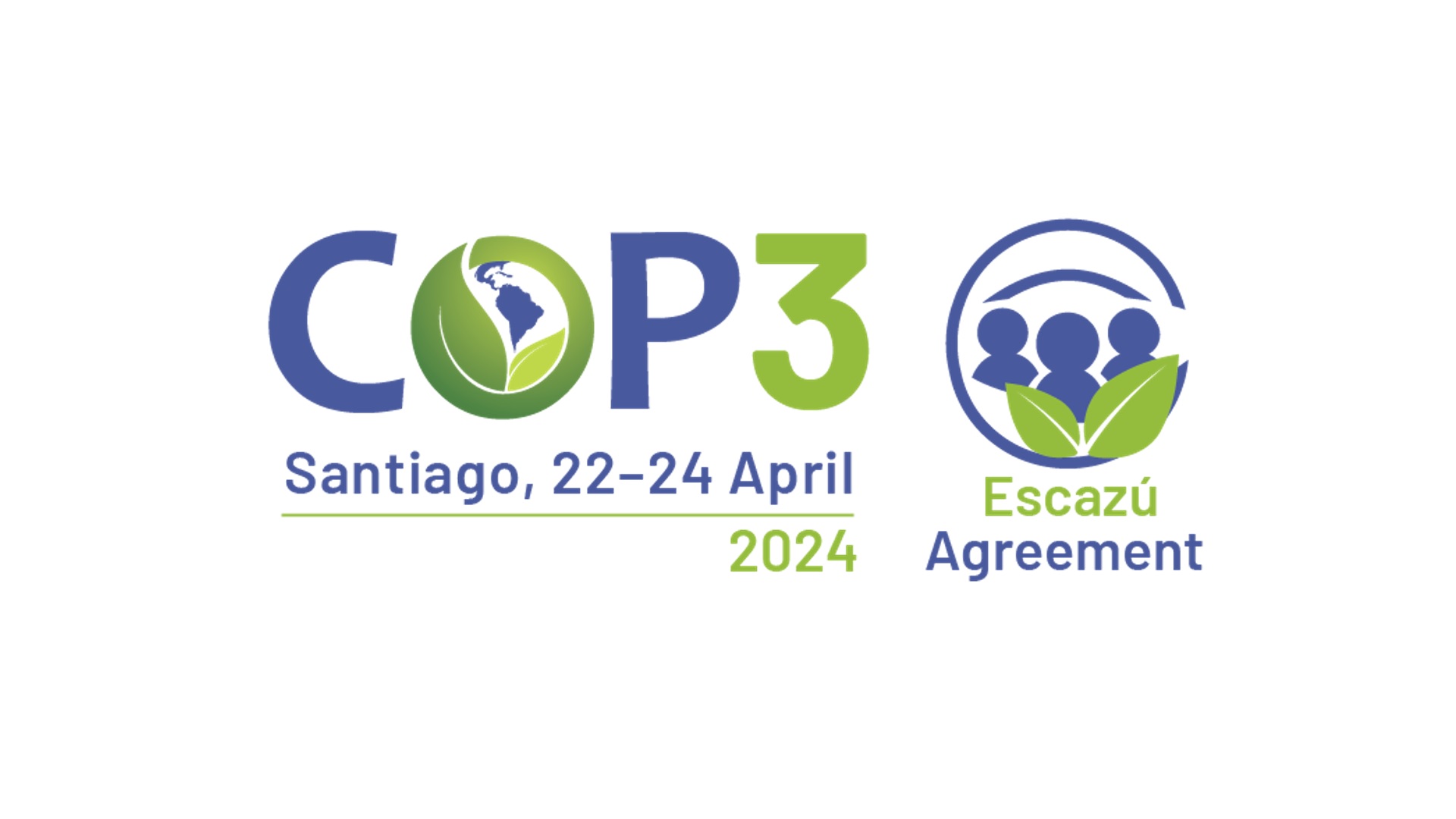States Parties of the Escazú Agreement Approved Action Plan on Human Rights Defenders in Environmental Matters
Work area(s)
The decision was adopted on the second day of the Third meeting of the Conference of the Parties in the first environmental treaty in Latin America and the Caribbean, being held in Chile.

An Action Plan on human rights defenders in Latin America and the Caribbean was approved on the second day of the Third meeting of the Conference of the Parties to the Escazú Agreement, held on 22 to 24 April at the Economic Commission for Latin America and the Caribbean (ECLAC) headquarters in Santiago, Chile.
The objective of the action plan is to highlight a set of priority areas and implement strategic measures to advance towards the full and effective implementation of article 9 of the Escazú Agreement on human rights defenders in environmental matters in the Regional Agreement on Access to Information, Public Participation and Justice in Environmental Matters in Latin America and the Caribbean, known as the Escazú Agreement.
Article 9 of the treaty establishes, among other things, that each Party shall guarantee a safe and conducive environment for human rights defenders in environmental matters to act free of threats, restrictions and insecurity. Parties must also take measures to acknowledge, protect and promote their rights and prevent, investigate and sanction attacks, threats or intimidation.
In the last decade, nearly 2,000 people who defend the environment were murdered globally, and 3 out of 4 of these murders occurred in a country within Latin America and the Caribbean, affirmed Marcelo Cousillas, Director of Legal Affairs at Uruguay’s Environment Ministry and Chair of the Presiding Officers of the Escazú Agreement at the COP 3 inauguration on Monday.
The Action Plan was prepared by an open-ended Working Group with significant public participation, especially by Indigenous Peoples and local communities, coordinated by Chile, Ecuador and Saint Kitts and Nevis and subject to consideration by the 15 States Parties of the Agreement. The term for implementation is six years: from April 2024 to April 2030.
The Plan is structured around four interrelated and complementary priority areas: knowledge creation; recognition; capacity-building and cooperation for national implementation of the action plan; and evaluation, follow-up and review of the action plan. Each priority area includes a set of strategic measures proposed to achieve objectives.
During the session, delegates from the government, international officials and representatives of the public and Indigenous Peoples agreed that, in addition to complying with the Agreement’s provisions, the Action Plan was of the utmost urgency and political relevance for Latin America and the Caribbean and an absolute ethical imperative given the dramatic situation experienced by human rights defenders in environmental matters in the region.
The meeting’s second session also included the presentation of reports by the Presiding Officers (chaired by Uruguay), the Secretariat (fulfilled by ECLAC) and elected representatives of the public.
A session was also held on national implementation of the Escazú Agreement in which the States Parties gave accounts of their progress in this regard and adopted a relevant decision.
Specifically, seven countries in the region—Ecuador, Argentina, Santa Lucia, Belize, Mexico, Uruguay and Chile—shared their national plans, either in construction and already approved, for effective and progressive implementation of the treaty. These plans included different strategies and actions aimed at widely announcing the foundation and scope of the Agreement, updating and harmonising internal regulations and coordinating work by the various institutions and actors involved.
During their interventions, these countries emphasized their deep commitment to the treaty and its provisions, thanked ECLAC for its technical assistance in national implementation processes, highlighted the need to create internal synergy and called for the acceleration of efforts to fully comply with the Agreement.
Finally, a special session was held on access to environmental information, focused on environmental information systems and registers of emissions and pollutant transfers, with the participation of prominent experts in this area.
Special sessions will be carried out Wednesday, 24 April on access to justice in environmental matters and public participation in environmental impact assessment, as well as the presentation of reports by the Committee to Support Implementation and Compliance with the Escazú Agreement and the reading of decisions approved during COP 3.
Related content

COP 3 of the Escazú Agreement Begins at ECLAC with the Commemoration of International Mother Earth Day
The third meeting of the Conference of the Parties to Latin America and the Caribbean’s first environmental treaty was inaugurated by Chilean President Gabriel Boric. During this event, the Action…

How to Follow the Third meeting of the Conference of the Parties to the Escazú Agreement
The main panels of the COP 3 of the first environmental treaty of Latin America and the Caribbean will be broadcast live on April 22-24, 2024. The invitation on social media is to participate in the…
Related event

Type
Country(ies)
- Latin America and the Caribbean